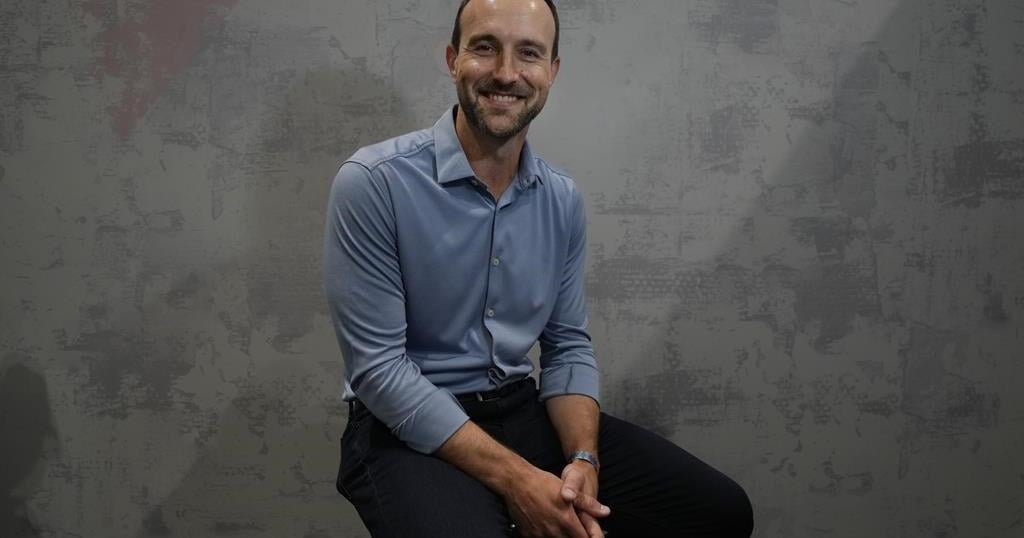The chief technology officer of Google’s cloud division says the next year or two will see many organizations shift from experimenting with artificial intelligence to truly putting it to work.
As companies move out of trial mode, Will Grannis says more and more are going to turn to AI-based platforms and tools for everything from financial services to health care.
He feels the shift will be triggered by the world’s growing familiarity with the technology and the ongoing quest to improve productivity and efficiency, particularly in the workforce.
“Public sector, private sector, commercial — it doesn’t matter because we all want to run our businesses more efficiently,” Grannis said in an interview during a recent trip to Toronto for the Collision tech conference.
“And it turns out today that there’s a lot of manual things people do that don’t provide a lot of value.”
Canada’s productivity rate — the amount the country produces for each hour worked — has declined in recent years to a level that is now 30 per cent below the U.S., a Royal Bank of Canada report released June 20 said.
Bank of Canada senior deputy governor Carolyn Rogers even went as far as to call the trend an emergency in a March speech.
The data RBC cites argues that AI couldreverse this trend, potentiallysaving each worker in the country between 100 and 125 hours per year and boost labour productivity by eight per cent by 2030.
Customer service and software development are areas that are particularly ripe for AI, Grannis said.
He’s heard of some Canadian support centres that receive up to 70,000 calls a day and humans predominately handle them.
Introducing AI to these centres means agents taking calls can be prompted with details about a customer’s history or what services they use. They can also get help translating between languages.
On the software development front, many companies have engineers creating apps and other products.
“The first thing that most software engineers do is they go try to find something that looks like (what their company wants) and they copy and paste it over and then they modify it,” Grannis said.
With AI, they could ask a model to draft codeby outlining exactly what they want to accomplish. AI will be able to complete the task using any programming language a developer desires and engineers will be able to ask another form of the technology to even critique the first one’s work. A third can fix any issues that are uncovered.
“You’re using AI in this kind of workflow management and you’re getting leverage from it,” Grannis said.
“Now, a software engineer can take advantage of their creativity, they can take advantage of their domain knowledge and they can get these draft versions of software 10, 100 times faster.”
A June report from Microsoft found coders who used generative AI tools could complete tasks in 56 per cent less time than non-users, and those using the technology for writing could shave down time spent on their work by 37 per cent.
But many fear increasingly relying on AI for tasks like these will contribute to unemployment.
A 2020 research paper from Statistics Canada found 10.6 per cent of Canadian workers faced a high risk of seeing their job transformed by automation, while another 29.1 per cent were at moderate risk. That transformation could include anything from job loss to an overhaul of their duties.
To cope with such transformation and re-skill for an evolving job market, Grannis said workers will have to get comfortable with AI as soon as possible.
“It can’t just be using an app and it can’t just be going to an online course,” he said.
“It takes some curiosity.”
Younger people, he added, already have that curiosity. They’re using the technology to write drafts of papers or code and find vulnerabilities in software they must handle during cybersecurity internships.
“So in a lot of ways, it’s getting other cohorts and other demographics more comfortable,” Grannis said.
Getting people comfortable also means helping them understand the technology’s limitations.
There is still a lot AI can’t do and even what it can do isn’t always perfect.
AI is known to hallucinate — provide incorrect or misleading information based on data it thinks is real but really isn’t.
For example, Google’s Bard chatbot claimed last year that NASA’s James Webb Space Telescope took the very first pictures of a planet outside of our solar system. The images were, in fact, taken by the European Southern Observatory’s Very Large Telescope in 2004.
Asked if AI will ever rid itself of all its problems and reach a flawless state, Grannis said, “Well, AI is created by humans.”
“Humans aren’t flawless,” he said. “So I assume that there will always be things to work on to make AI better.”
This report by The Canadian Press was first published July 2, 2024.
